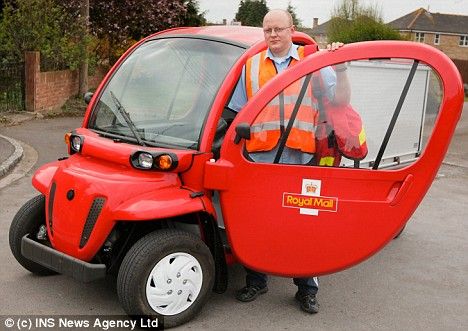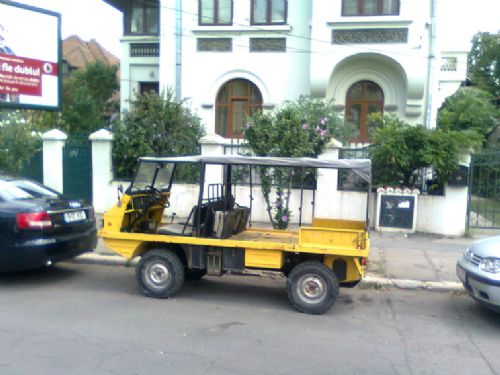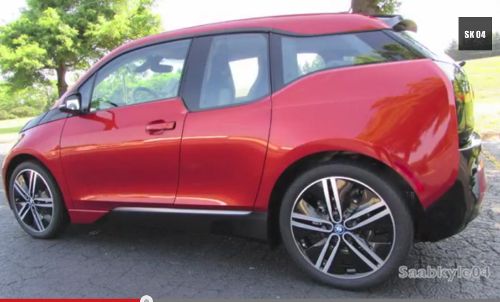
|

|
Forum Index : EV's : Electric cars a waste of money
| Author | Message | ||||
| Warpspeed Guru Joined: 09/08/2007 Location: AustraliaPosts: 4406 |
I used to work at the research lab of the Gas And fuel Corporation in Melbourne a long time ago. Anyhow, the lab obtained a natural gas compressor, and planned to convert a small four cylinder car to CNG to do some long term testing. The compressor arrived on a pallet, a monstrous three stage water cooled device capable of compressing the 0.1 psi natural gas domestic line pressure, to however many thousands of psi (?) were required for the vehicle gas storage tank. The natural gas was so cheap it was almost free, but the off peak electricity required for gas compression was by far the major cost of running this system. It certainly looked extremely attractive form the cost aspect of miles per dollar. Suddenly the whole project was frozen, and the compressor disappeared, and the State Government FORBID us to do any more testing or research on CNG. The reasons given were: 1/ There was no way to tax people compressing natural gas at home for road use. 2/ Insurance companies and the Fire Brigade were very concerned about fires and explosions in domestic garages around the suburbs. 3/ Untrained people transferring very high pressure flammable gasses was thought to be far too dangerous. So we will never see this. But the technology exists, it works, and it is very economic, at least in the Aussie states that have extremely cheap natural gas by world standards. Natural gas burns very cleanly, it has a high octane, and it is compatible with engine lubricants and materials. At around 1.3 cents per Megajoule (million Watt seconds) it is extremely cheap power. Just to give you an idea 1,000 Joules/sec = 1.3 Hp (at 100% efficiency). 1 Megajoule = 1.3 Hp for 1,000 seconds costs 1.3 cents So 1Hp for 16.7 minutes costs one cent (at 100% efficiency). Conversion would be trivial compared to scratch building an electric or hybrid vehicle. Assuming an IC engine can run at perhaps about 20% efficiency, the economics are still pretty good. Dual fuel would be possible too. Compressing the gas to the enormous pressures required to make it practical is what costs, not the actual gas used. And it is as clean and green as anything electric. Plus you could do it all at home yourself. Cheers, Tony. |
||||
| grub Senior Member Joined: 27/11/2007 Location: AustraliaPosts: 169 |
If cng is cheap, then why not use an internal combustion engine running on low pressure cng to run the compressor to compress the cng to the higher storage tank pressures? For that matter why not use the same motor to run a generator for your house? |
||||
| Warpspeed Guru Joined: 09/08/2007 Location: AustraliaPosts: 4406 |
Why indeed ? These natural gas generators are available right now from about 1Kva upwards. http://www.electricgeneratorsdirect.com/natural_gas.php Most of the very small ones are made in China, and the prices very competitive. Here is a quick sample I found using Google: http://www.poweredgenerators.com/natural-gas-generators.html These generators are used in America where natural gas costs multiples of what it costs in Australia. How about a propane/natural gas conversion kit for a small existing petrol generator ? http://www.propane-generators.com/ For compressing natural gas for a road application, a multi stage compressor, perhaps something like a scuba tank compressor might be practical? These are not cheap, even secondhand, but it would be the most expensive part of the system, and you might fluke a really good deal on one. I have not tried any of this myself (yet), but all the hardware is already out there, and more or less readily available. To me at least, a dual fuel petrol/CNG vehicle looks a lot easier to do, more practical, and economically promising than a straight electric vehicle. Cheers, Tony. |
||||
| VK4AYQ Guru Joined: 02/12/2009 Location: AustraliaPosts: 2539 |
Hi All Problem with natural gas in QLD is getting a pipe long enough to go to Canberra. 
I like the concept but no access to NG where I live is the problem, you city guys should look at it seriously, however there are some safety issues with the process that may preclude the use by all and sundry. All the best Bob Foolin Around |
||||
| Warpspeed Guru Joined: 09/08/2007 Location: AustraliaPosts: 4406 |
Yes Bob, access to clean cheap natural gas is not yet available for everyone, unfortunately. But for the lucky few, it might be well worth thinking about. My first step will probably be the purchase of a small natural gas standby generator for suburban Melbourne. As for compressed natural gas, safety concerns for sure, and also the circumvention of state road tax is going to become a problem if/when the bureaucrats eventually discover people are actually running vehicles on home made CNG. To an untrained observer, a CNG installation may not look all that different to an LPG installation. But advertising the fact you are doing this over the internet may not be a good idea. That does not effect me, because it is something I have never done, or know of anyone doing. I just wish to suggest some possible ideas for further study among the great minds here. Cheers, Tony. |
||||
| viatu3 Newbie Joined: 29/11/2011 Location: United StatesPosts: 5 |
I have never used an electric car yet, but shouldn't it be better for environment and this is the most important reason to buy an electric car? Well I think the point you've mentioned, that it needs much power, is true.... Sometimes I'm not sure what I should believe. Everybody says different things and it confuses me. |
||||
| VK4AYQ Guru Joined: 02/12/2009 Location: AustraliaPosts: 2539 |
Hi Viatu An electric car is a good town runabout but to date they lack range, the hybrid is more practical but still reliant on fossil fuel so not a complete solution. The other issue is how the electric current is generated to charge the electric car, if it comes from the grid coal fired or nuke power the problem isn't solved it just shifts pollution from one place to another, if access is to Hydro or solar power it goes a long way down the sustainability road, the other issue is pollution generated making the batteries and later recycling them. And still we have limited range on pure electric cars limiting their use outside the 50 mile radius from home. As mentioned earlier in this thread CNG has potential as is it low polluting and reasonable priced but still a fossil fuel. Future public transport 
Share a ride to work. 
Reduces carbon emission per capita, and if it is an electric bike charged from solar panels, it is a clean solution, but do we want that? Not everyone's solution but a very interesting and challenging field. All the best Bob Foolin Around |
||||
| tomqu7 Senior Member Joined: 09/11/2012 Location: AustraliaPosts: 168 |
this and that if u are able to charge up your car from your solar garage the govt will not get its petrol exise. The govt is going to start exising lpg I have to do do some thing as I drive many kms 2. coal is making a come back as briquettes they are sold in bags in melbourne u put them into a heater and burn them for heating |
||||
| tomqu7 Senior Member Joined: 09/11/2012 Location: AustraliaPosts: 168 |
|
||||
| praxidice Newbie Joined: 18/07/2013 Location: AustraliaPosts: 18 |
Way back in the mists of time, Brisbane Gas Company used to do CNG conversions, however that mob has been part of AGL for yonks &as far as I'm aware, AGL doesn't want to know about private CNG installations these days. Someone however is setting up most of the Brisbane Council buses to run CNG and has been for many years. I recall seeing a CNG Gemini van at a car show once, apparently it took HOURS to refuel, and that may well be part of the reason why we don't see any mention of the system now & another issue is the limited range. Dunno exactly whats the full story with refuelling the buses but there have been a few interesting incidents reportedly due to over-filling the roof-mounted tanks. According to some drivers I queried, the CNG buses only have 150 - 180k range despite the tribe of tanks fitted. |
||||
| praxidice Newbie Joined: 18/07/2013 Location: AustraliaPosts: 18 |
'Efficiency' isn't necessarily the same thing to different people or in different situations. For example, I've been having a running battle with philistines who believe the General Disaster male bovine excreta about PV system owners being responsible for electricity price escalation. Philistine wants all PV systems to be in solar farms for 'efficiency', however that would do SFA for electricity prices, any saving would be soaked up by the bottom-feeding bloodsucking parasites we call 'politicians'. Consequently, personal PV systems, while maybe not seen quite as 'efficient' by the great unwashed, are certainly more efficient in terms of my personal electricity bill which has been considerably negative for years. Same with any form of fossil fuelled transport ... they still support oil barons and middle-east terrorism. Personally I believe ay-rabs would probably be nice people if they had no money and spent their time riding (and perhaps doing other unmentionable things with) camels in the desert. On the other hand, PV generated electricity is cheaper than chips and doesn't enrich either oil barons or middle-east terrorists, consequently its infinitely more efficient in terms of its effect on my bank balance. Furthermore, its only a matter of time before some enterprising crook decides to make the most of the peak oil issue (totally regardless of whether its factual or otherwise). PV generated electrons are unlikely to experience any massive price escalation since nobody yet has figured a way to stick barcodes or other identifying marks on something so small. |
||||
| Warpspeed Guru Joined: 09/08/2007 Location: AustraliaPosts: 4406 |
Recharging a battery can take many hours as well. Its only a problem if you plan to keep the vehicle on the road 24 hours per day, or regularly do very long trips away from home. If your CNG compressor runs at night, and refills the tank over a few hours, and you only plan on short suburban trips, say to work and back each day, Saturday morning shopping, social visits and nights out, that should not be a problem for a typical suburban vehicle. Buses, like fork lifts, scissor lifts, street sweepers, garbage trucks, and many other commercial applications generally only need to last one eight hour work shift. They then get a recharge/refill that could take eight or sixteen hours to the next start of shift. There are a great many applications where an eight/sixteen hour refill is no inconvenience at all. Also quite a few applications where anything more than a very few minutes to refill would be totally impractical. Cheers, Tony. |
||||
| praxidice Newbie Joined: 18/07/2013 Location: AustraliaPosts: 18 |
True, whats probably more difficult to work around is finding both the parts and someone qualified to give the official seal of approval necessary to register / insure the converted vehicle. There is a well-established protocol for LPG vehicles but as far as I'm aware, none whatever for CNG outside the Brisbane Council system. Whilst it 'may' be possible to do a conversion outside 'the system', I wouldn't want to run the risk of an uninsurable zillion dollar lawsuit if / when something goes wrong (as has been the case with a few buses). Gas fires aren't nice things when they get out of control. Dunno what happens to the ex-Brisbane Council buses when they are sold off, I can only assume they are either scrapped or converted back to diesel. The latter is more likely as a bus cum motorhome wouldn't be much use with 150k range even if one could find a CNG refuelling station. |
||||
| domwild Guru Joined: 16/12/2005 Location: AustraliaPosts: 873 |
As Bob said solar car park charging was already in action as seen on "Who killed the electric car?". And that was California with its comparable heat. So heat is not too much of a problem. Taxation as a means of achieving prosperity is like a man standing inside a bucket trying to lift himself up. Winston Churchill |
||||
| domwild Guru Joined: 16/12/2005 Location: AustraliaPosts: 873 |
I remember electric delivery vans of the post office running silently at night through the city streets; definitely on short runs only. Taxation as a means of achieving prosperity is like a man standing inside a bucket trying to lift himself up. Winston Churchill |
||||
| VK4AYQ Guru Joined: 02/12/2009 Location: AustraliaPosts: 2539 |
Hi Dom I still remember the electric vans used for deliveries around the city in the 1950's and for short haul they worked well but I was told by a retired engineer who maintained them that the weight of the batteries exceeded the payload, not very efficient at all but it can be done. He also mentioned that they where not used in hilly areas due to power loading and lack of regenerative braking. The Lipo batteries have gone a long way to solve the weight problem, but range is only limited still, and the cost of the batteries at the moment is prohibitive at the moment. New developments may help the cost problem in the future. As mentioned earlier in the thread the issue of taxing the use will become an issue for government, at the moment they skin us all at the bowser,easy, but with electric power alternate energy it will be much harder for them to put their knife into our wallet. If enough electric cars get going they will find a way no doubt. I read an article last year of a guy in Europe making a 2 HP electric trike as a town shopping trolley, range of 100 K at 60 KLH using hub motors and 48 volt Lipo bike batteries, payload 50 KG with 2 passengers, it had several flexible PV cells to supply ancillary systems, a built in charger and a small petrol alternator for emergency charging. I think we will see more of this concept in the future as oil prices rise and parking becomes more of a hassel in the cities for conventional cars. I cannot find the article anymore but from memory it cost $5 to 6 K as a kit. Something to think about. All the best Bob Foolin Around |
||||
| vasi Guru Joined: 23/03/2007 Location: RomaniaPosts: 1697 |
The animation: 
The possible future if tests are reliable: 
Source here . I looked for a photo with an old electric car used by Romanian Mail for loading/unloading the trains. No success yet... maybe I will make a photo on a first occasion. Hobbit name: Togo Toadfoot of Frogmorton Elvish name: Mablung Miriel Beyound Arduino Lang |
||||
| vasi Guru Joined: 23/03/2007 Location: RomaniaPosts: 1697 |
Edit: Sorry, is not what I thought it is, it is a Steyr Puch Haflinger, but looks very much like the electric car we use for postal transportation inside train stations... ______________________ I found one, but is tuned by his owner... 
Hobbit name: Togo Toadfoot of Frogmorton Elvish name: Mablung Miriel Beyound Arduino Lang |
||||
| vasi Guru Joined: 23/03/2007 Location: RomaniaPosts: 1697 |
I would like this BMW i3 more than a Tesla. 
Hobbit name: Togo Toadfoot of Frogmorton Elvish name: Mablung Miriel Beyound Arduino Lang |
||||
| Greenbelt Guru Joined: 11/01/2009 Location: United StatesPosts: 566 |
The Flow Cells are the future choice for EV's. If you have not seen this creation then visit this web site, the nanoFLOWCELL will make an Impression. Sport car powered by Salts water Cheers ---------Roe Time has proven that I am blind to the Obvious, some of the above may be True? |
||||